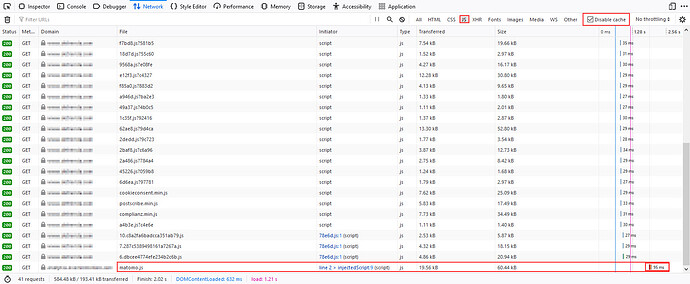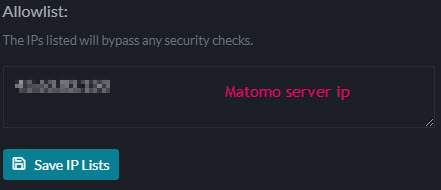Hi there, I have recently been getting serious about improving the speed of my website. I’ve done several things, including using Cloudflare, but mainly reducing graphics on the page.
I recently ran an in-depth website speed test (the cascade type) and sorted the elements according to load time. I was surprised to see that the one item that took the longest to load was related to Piwik. It wasn’t any of the graphics on my page, not the css or any javascript or widgets, but Piwik.
I don’t know which component of Piwik it is, exactly, which is why I’m here. I don’t know how to interpret what this means. (This is the report from the speed test):
529Bytes
http://www.example.com/piwik/piwik.php?action_name=Domain%20Name%20Page%20Title&idsite=1&rec=1&r=234824&h=5&m=1&s=24&url=http%3A%2F%2Fwww.example.com%2F&_id=b6c7a17963c6a9bd&_idts=1428980485&_idvc=1&_idn=1&_refts=0&_viewts=1428980485&pdf=1&qt=0&realp=0&wma=0&dir=0&fla=1&java=1&gears=0&ag=0&cookie=1&res=1280x1024>_ms=1465
[b]Response Headers[/b]
200
Pragma no-cache
Date Tue, 14 Apr 2015 03:01:26 GMT
Content-Encoding gzip
Server cloudflare-nginx
X-Powered-By PHP/5.4.27
Vary Accept-Encoding,User-Agent
Content-Type image/gif
Set-Cookie PIWIK_SESSID=86dc1594e702cddc19e5afff6a69b0b0; path=/; HttpOnly
Cache-Control no-store, no-cache, must-revalidate, post-check=0, pre-check=0
Connection keep-alive
CF-RAY 1d6c2a7fdf161834-EWR
Content-Length 50
Expires Thu, 19 Nov 1981 08:52:00 GMT
[b]Request Headers[/b]
Pragma no-cache
Accept-Encoding gzip, deflate, sdch
Host www.example.com
Accept-Language en-US,en;q=0.8
User-Agent Mozilla/5.0 (X11; Linux x86_64) AppleWebKit/537.36 (KHTML, like Gecko) Chrome/39.0.2171.95 Safari/537.36
Accept image/webp,*/*;q=0.8
Referer http://www.example.com/
Cookie __cfduid=d04406582980e75c8ef75d8b4472b3ba41428980481; has_js=1; _pk_id.1.bff6=b6c7a17963c6a9bd.1428980485.1.1428980485.1428980485.; _pk_ses.1.bff6=*
Connection keep-alive
Cache-Control no-cache
So then, I temporarily disabled Piwik on my site, and ran the website speed test again. This time, the website loaded in half the time, an improvement of almost 2 seconds!! (It went from 4.25 seconds down to 2.4 seconds, which is a huge improvement).
Finally, The “529 Bytes” element seems to be a very small image (gif) that looks like a small white dot. (I clicked on the link in the website speed test and the small image loaded).
Is there anything I can do to “fix” this? I wish I had run the detailed test prior to using Cloudflare, so I could eliminate that possibility, but it is what it is.
According to Cloudflare’s site, using Cloudflare can interfere with 3rd party analytics, so you are supposed to install “mod_cloudflare” in Apache, which I have… not sure if this is good or bad. mod_cloudflare is supposed to let your 3rd party analytics see the visitors’ real IP address (instead of only seeing Cloudflare’s servers’ IP addresses).
I desperately needed to improve my website’s speed, so I am encouraged the speed nearly doubled, but at the expense of disabling Piwik analytics 
Any ideas? Thanks.




 .
.

 Good luck.
Good luck.